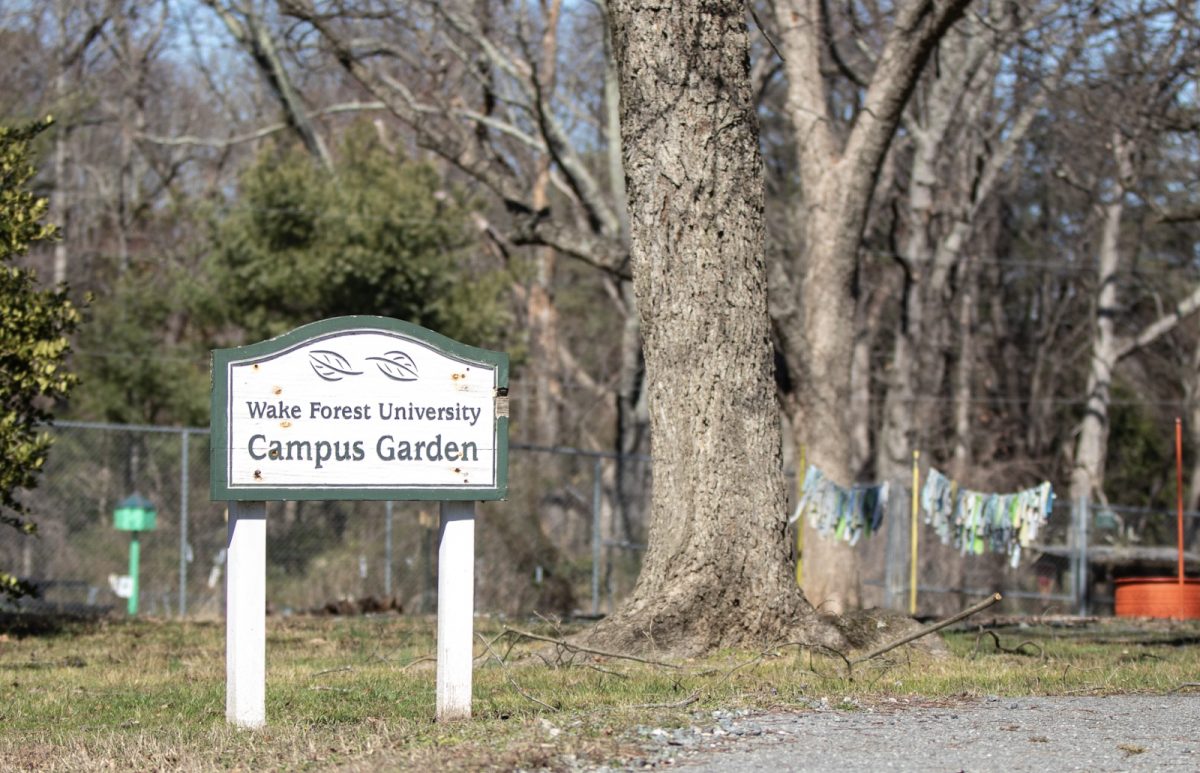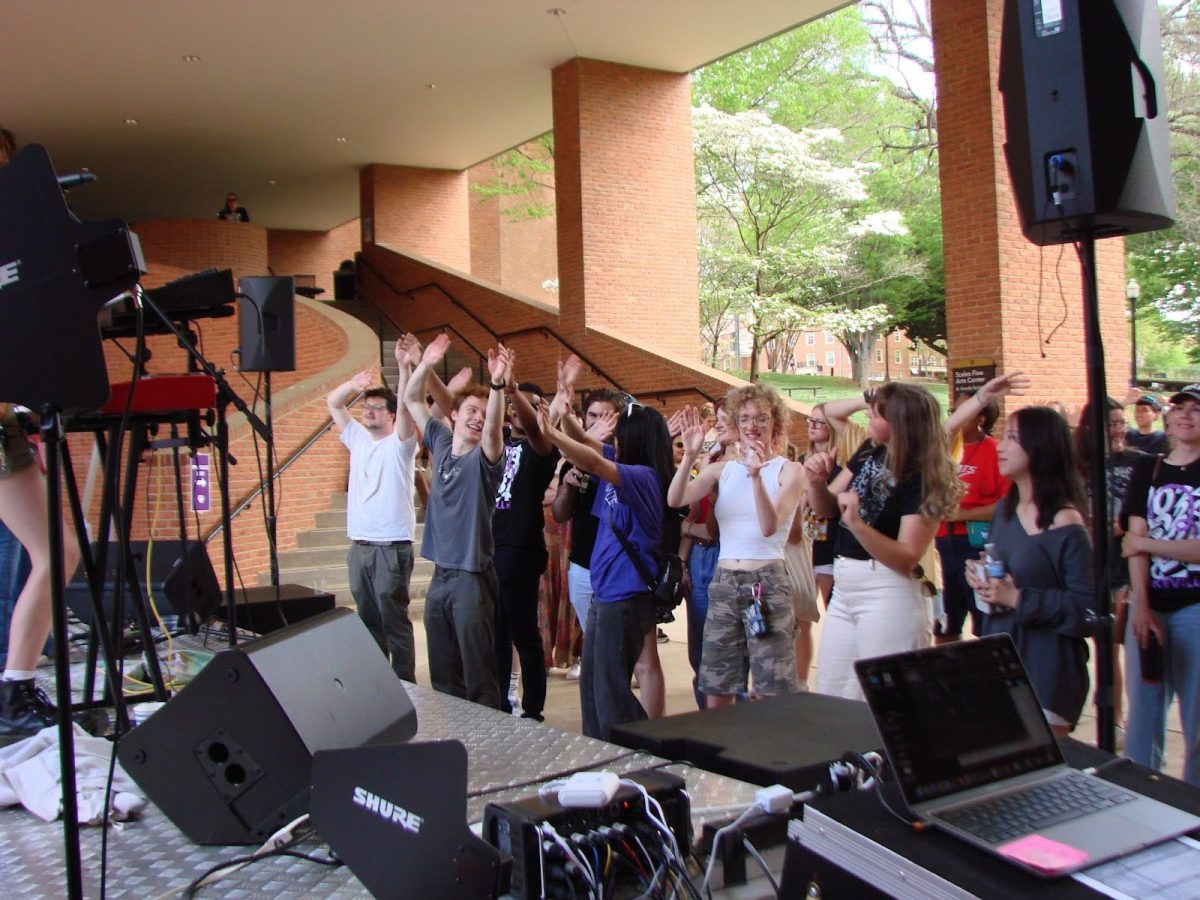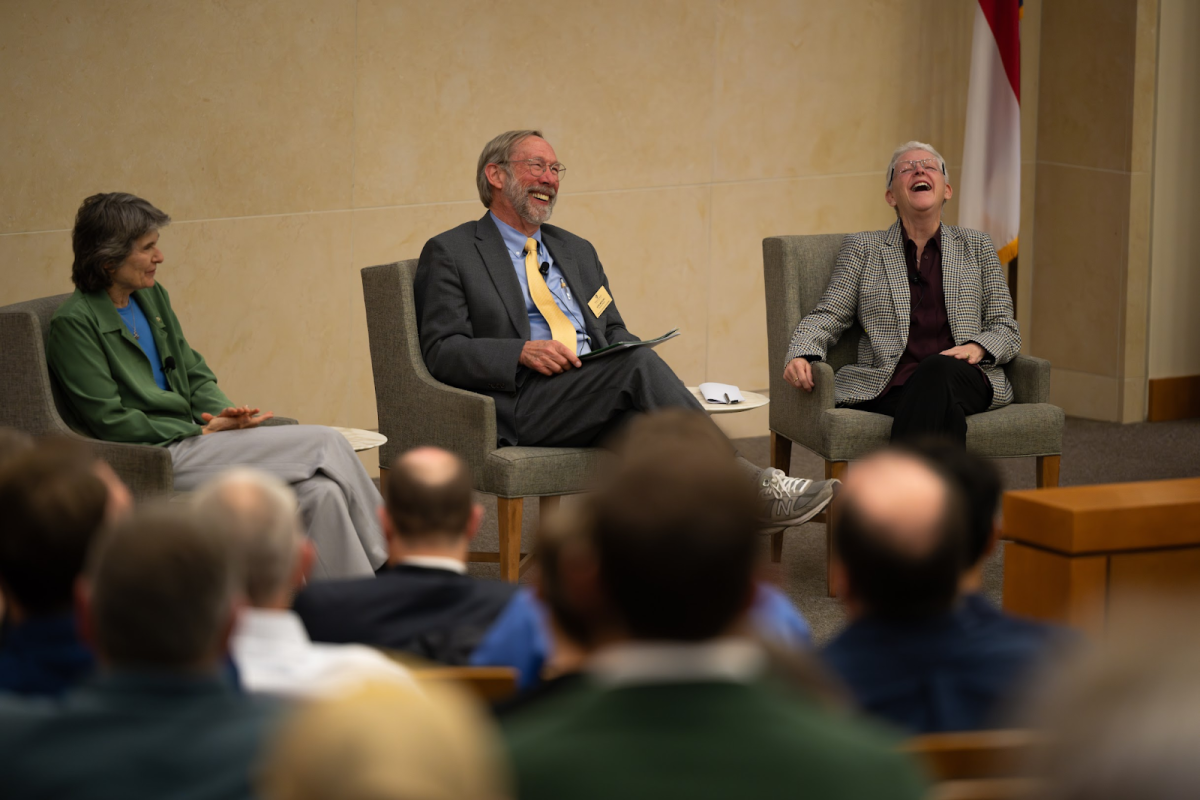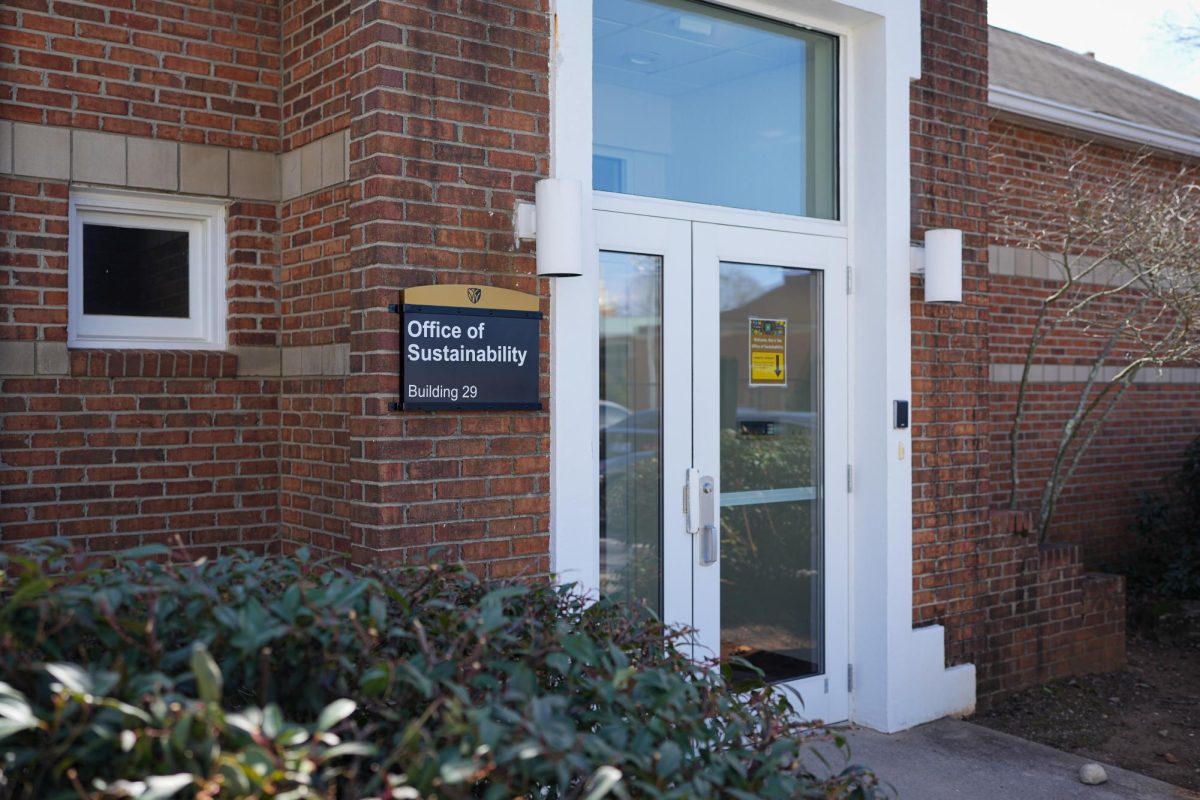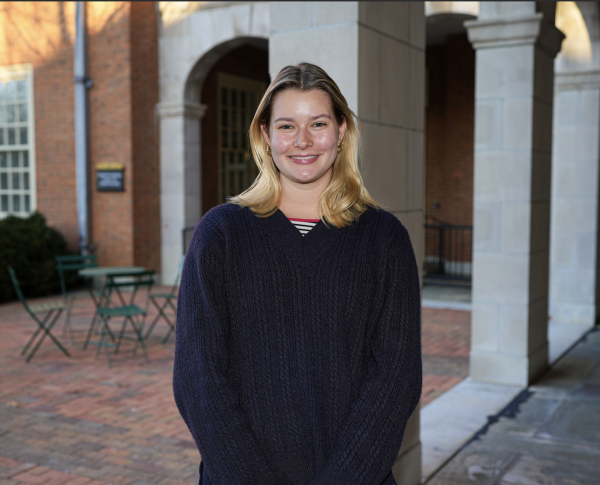The campus garden is an oasis in the reality that is our busy world. The orchestra of birds chirping, red-tailed hawks screeching and three garden chickens rummaging through the grass drown out the sound of honking horns and engines on the road.
A hand-painted garden shed sits at the entrance to the garden, just across Polo Road from the soccer fields. A gated garden covers about three-fourths of an acre — yellow, pink and orange flowers scatter the grassy area. The garden is home to dozens of species of plants, including apple trees, watermelons, tomatoes, peppers and basil.
Sarah Rodgers, who became the Office of Sustainability’s outdoor learning spaces coordinator in March 2024, closed her eyes when I asked her to describe her new “office.”
“The smell to me comes from the tomato plants,” Rodgers said. “In the summer when it’s warm, it just wafts through the air … this acidic and earthy smell.”
Since beginning her position at Wake Forest, Rodgers has connected with the earth around her, educated students on sustainable agriculture and delivered fresh harvest to the Campus Kitchen.

Rodgers became interested in gardening and agriculture during her undergraduate years at St. Michael’s College. While enrolled in the environmental studies program, she found the weight of the climate crisis sitting on her shoulders. To mitigate this, she signed up for a food systems and sustainable agriculture course, with an outdoor component. There, she learned about regenerative agriculture and got to work on the school’s one-acre student farm.
Before and after earning her master’s degree in food systems and sustainable agriculture from the University of Montana, Rodgers worked in gardens, gaining years of valuable insights that she brings to the job in Winston-Salem.
“See one, do one, teach one,” Rodgers explained.
She learned this approach from one of her undergraduate professors and garden manager and has implemented it at Wake Forest’s campus garden. Working with the three student interns, she has them see her complete a task, then she watches as they do it and finally, the interns teach the task to the student volunteers.
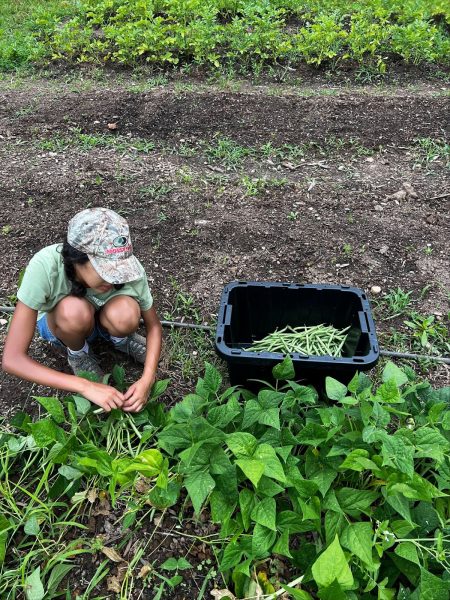
Rodgers is a leader not only at the campus garden, but also for Tohi Garden and parts of Reynolda.
“In [the] Tohi [Garden], we talk about the stormwater system, why Tohi exists and how it was created […],” Rodgers said. “The faculty member and student started [Tohi] as a way to plant native and edible and medicinal plants on campus. It was created as a way to highlight Indigenous knowledge in a natural area on campus.”
One of Rodgers’s tasks is to implement drawdown solutions in the garden.
“We work to demonstrate drawdown solutions, which are science-based climate solutions, and regenerative agriculture is one of the top solutions to fighting against climate change,” she said.
Syngenta defines “sustainable agriculture” as a mix of sustainable innovations and traditional practices. Its focus is on the regeneration of soil and keeping our environment and ecosystem intact.
The garden is made up of plots, a butterfly way station and bee hives, all of which are fed by the compost made here from food scraps dropped off by students. The garden is a poster child for regenerative agriculture.
“In the garden, we practice this method by being low or no-till, intercropping, crop rotations and applying compost,” Rodgers explained.
In the past week, Rodgers has talked to a first-year seminar, a Spanish class, an epidemiology class and a literature class. The wide range of courses all use the garden as a way to connect the environment to their syllabus, whether it be by actually planting a seed and watching how it grows, or by harvesting food to give back to the Campus Kitchen.
“The classes we saw this week are all coming back out, which is exciting,” Rodgers said. “They’ll come back out in November, so they can see the fruits of their labor.”
For the past seven months, Rodgers has been preparing the gardens for the fall cropping season. However, this was no easy task.
“There’s been a lot of little triumphs. Each time we rescued a bed from grass this summer, it felt like a win,” Rodgers said.
Rodgers has been able to transform the campus garden and is now teaching all types of classes the importance of sustainable agriculture. With the help of interns and volunteers, the campus garden is prepped for the winter season.


